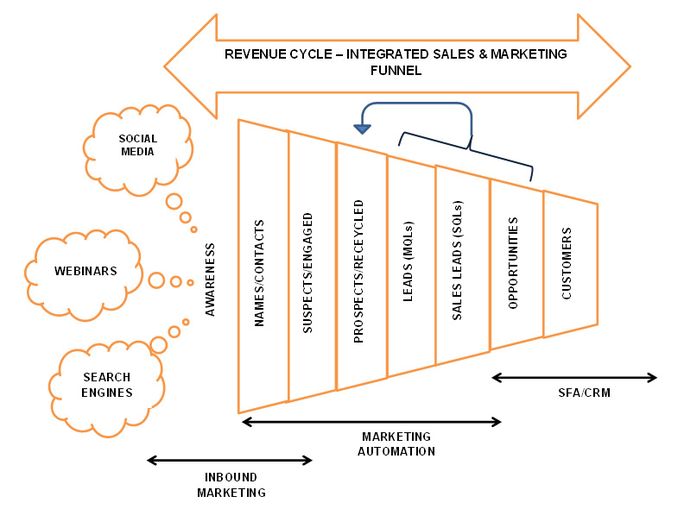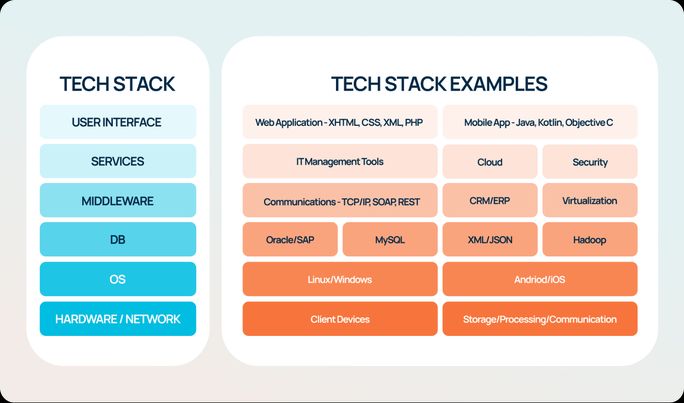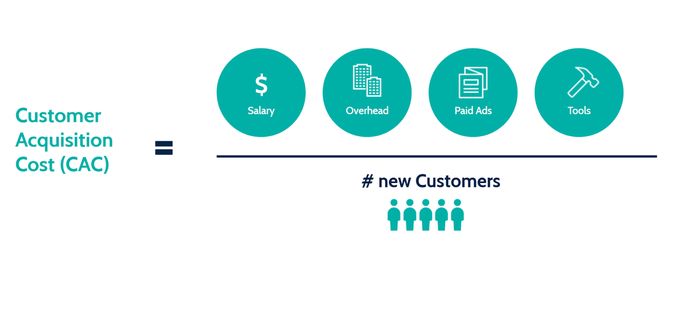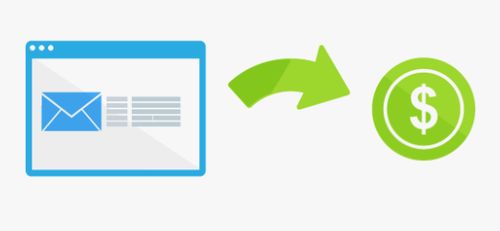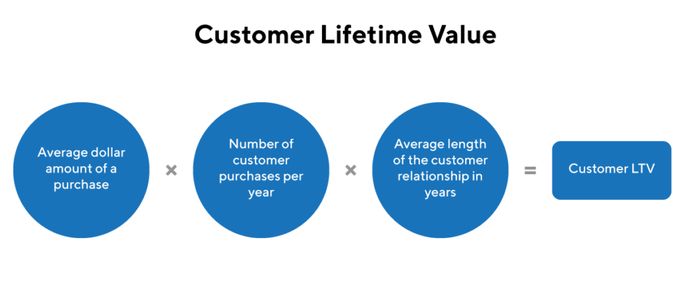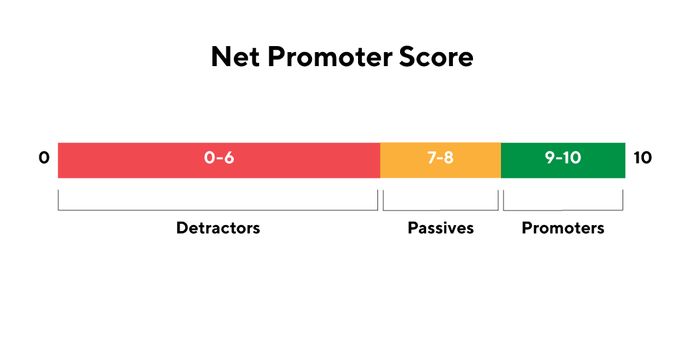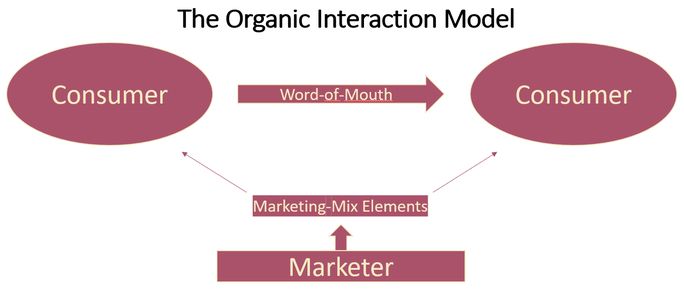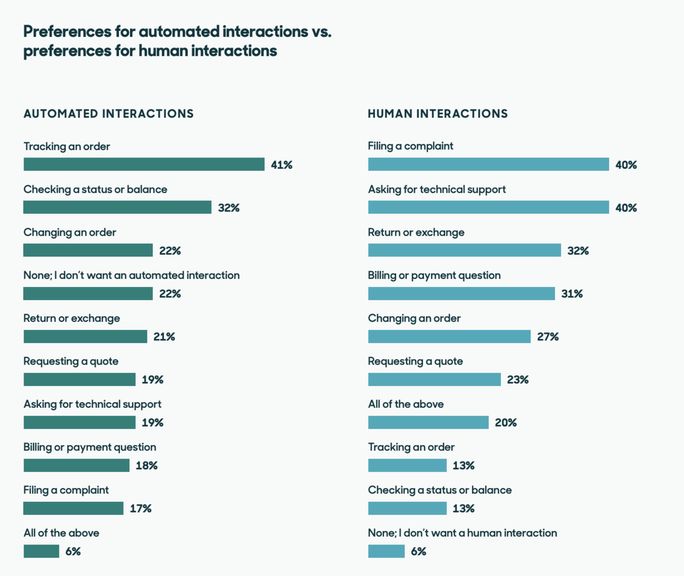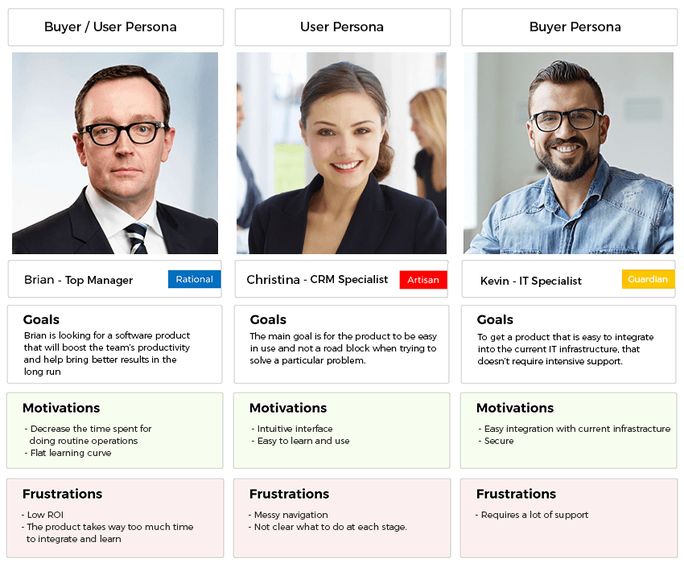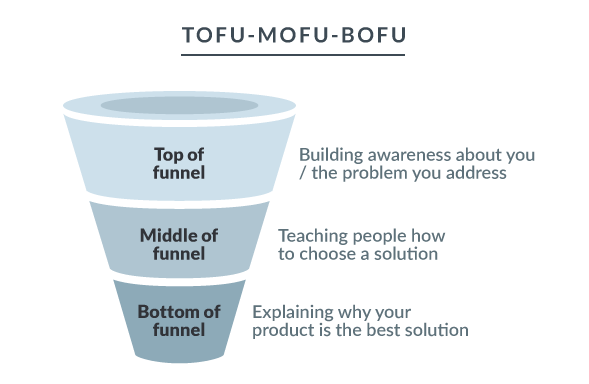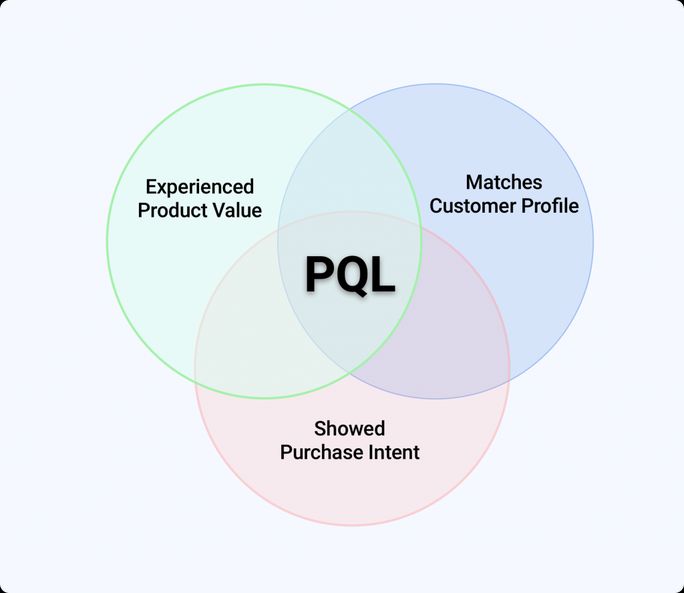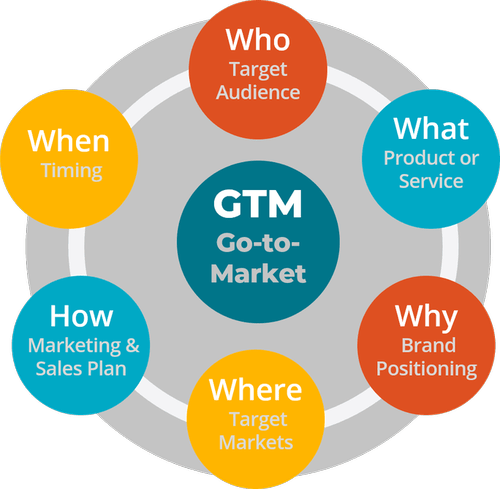By Mark Schaefer
Yes, there is a most important word in marketing!
It’s not niche or product or even Facebook. But before I tell you what I think it is, will you let me tell you a little story to explain what it is?
You will? Of course you will. You really have no choice do you?
The most important word in marketing
A few years ago I was helping out a marketing manager who was in charge of selling simple metal parts into the aerospace business. A new competitor on the West Coast had stunned this business by taking nearly all of the lucrative California customer business — about one-third of the total market — in just a year.
“What are you going to do about this?” I asked my friend.
“Well, we’re the market leader and we’re going after it,” he said. “We’re going to cut the price and get all that business back.”
Sounds like a plan, right?
Well, after I conducted some research, here is what I learned:
- The competitor had newer, more efficient equipment and a lower-cost non-union workforce.
- The California-based competitor went after the West Coast business where it also had a significant shipping cost advantage over my Midwest-based client. The parts were heavy and expensive to ship.
- The end customers usually required long-term supply contracts so the business was probably lost for a number of years.
- My customer dominated in the Midwest market where it had a shipping advantage and long-term contracts of its own.
- Customers in Europe were also extraordinarily loyal to my customer. We weren’t sure why, but they did not seem to ever switch from our supply.
The maneuver
When I reviewed the situation with my friend, suddenly it seemed foolish to cut the price to try to win the business back. In fact it would have been disastrous. If he went charging back into the California market he could not possibly compete on price. He would just lower the prices overall and the competitor might even send a message by attacking us in our own backyard.
As the market leader, my customer needed to exert discipline and look for another way to maneuver. He could not maneuver on price. He could not maneuver by sending in the cavalry to re-take the California market, at least for now.
We needed to defend the Midwest market, grow the loyal European market (and find out why we had an advantage there) and then look toward long-term equipment modernizations, and perhaps a West Coast location that would allow us to compete long-term (they eventually built a plant in Nevada).
Creating strategic leverage
The number one priority for a marketing professional is to determine where the company can best maneuver. Is it through product development, investment in branding, being the low-cost leader, developing a new distribution channel, or even through social media prominence?
The key to successful marketing is figuring out where you can create strategic leverage against your competition — where you can maneuver. While marketing might seem overwhelming and complicated, it’s not. Chances are, any business is really very limited in terms of where it can exert power. Your strategy is usually pre-determined by factors such as:
- Your competitive position in the industry (leader? new entry?)
- The growth rate of the industry
- Entry barriers
- Nature of competition (is it fierce? is it cozy?)
- Technological disruptions
- Buying trends
… and other factors.
So, the most important word in marketing is “maneuver.” Determining where you have room to maneuver in your marketplace will align all the pieces of your strategy and tactics.
This seems like such a simple concept but it’s overlooked by many. Does “maneuver” seem like the most important word in marketing to you or would you choose another?
Note check out this accompanying post for more on marketing and maneuverability.

Illustration courtesy Flickr CC and Maybe Joe.
All posts
Want a competitive advantage in marketing?
Subscribe to my {grow} newsletter for my weekly insights that will set you apart as an elite marketer.
What do you think is the most important word in marketing? What words attract customers?
NEW? Or maybe FREE?
These two are powerful words, yes, but are they, what we call, the most important word in marketing?
I’d say no, but they’re some attractive words for advertising.
The Most Important Word In Marketing Is «YOU»
Why? Because while you’re selling something or trying to get your prospect to do something, you have to talk to them mostly about them.
That’s how you create and maintain good relationships.
Ask questions, and talk about solutions for their problems… always make it about your prospect because it’s the only thing they care about when they’re reading your ad copy or landing page copy.
Some advertisers suggest that YOU cannot be used in a Facebook ad copy, which is 100% WRONG.
You might also be interested in…
To learn more about other powerful marketing words, and ultimately sell CLICKBANK products with Facebook Ads, check out my new e-Book; It’s called “The 7 Figure Affiliate,” and if you apply everything in it, you’ll make between 70-90 sales/day in your first week as an affiliate marketer!
How To Make
$2130,92 a Day
As An Affiliate Marketer
-
How to Create 13.4% CTR Facebook Ads -
Banned Ad Accounts & Disapproved Ads -
How to Create a 52.7% CTR Landing Page
Take the
Super Affiliate
Quiz
Find out if you’re eligible to become a SUPER AFFILIATE and improve your conversion rate by up to 352.7%
Become a Super Affiliate
87.3%
Privacy | Terms | Disclosure | Contact
This site is not part of the Facebook website or Facebook Inc. Additionally this site is NOT endorsed by Facebook in any way. Facebook is a trademark of Facebook, Inc.
Disclaimer: The information contained in www.affiliategiraffe.com website is for general information purposes only. AffiliateGiraffe assumes no responsibility for errors or omissions in the contents.
2016-2020
© All Rights Reserved
Affiliate Giraffe
Every business owner is seeking for those magic bullet strategies and powerful marketing words that will make the copy in your email newsletters, website pages, and other materials profitable.
Actually, it doesn’t operate that way. To create a marketing material bridge from consumer to customer, certain tenets — like quality and trust — must be woven through the heart of all your content.
The good news is that while establishing trust through branded content, SEO strategies, online personas, social media postings, website and landing page copy, and other methods, your word choice will serve as your first line of defense.
Copywriting is all about using words to motivate readers to take action. Despite the fact that the dictionary contains a large number of words, it can be difficult to come up with genuine, potent, non-repetitive words and phrases that will resonate with your audience.
This article provides you with a list of powerful marketing words to use as a basis for creating reliable text that will:
COPYRIGHT_MARX: Published on https://marxcommunications.com/powerful-marketing-words/ by Keith Peterson on 2022-09-02T06:17:17.473Z
- minimize risk
- minimize uncertainty
- create trust
- encourage purchases
- create a sense of urgency
- stir curiosity
- Engage your audience
- communicate value
- impose authority
- infer development or gain
While the history of copywriting dates back to the days when billboards, newspapers, magazine advertisements, and direct sales publications were the norm, it has since developed into both an art and a science.
Copywriting has been able to penetrate practically all areas of the digital world because of its branching out. There are many copywriting programs available that can assist you in writing effective copy.
However, in this article, you won’t need any copywriting software because we will help you create powerful marketing words that can make you land your client and customers.
What Are Power Words?
Power words are words that smart marketers and copywriters use to make people feel something or think something.
Words with power make people feel, act, or have an opinion. They make you want a product, make you click «buy now,» or remind you of something.
A strong power word can make the difference between a reader signing up for your email list, downloading that guide you worked hard on, or sharing your well-written content on social media.
Using the right words at the right time, depending on your goals, is the key to using smart marketing words. One of the most important ideas in marketing psychology is this.
Simply put, you want to use one set of power words when you want to emphasize exclusivity and a different set when you want to stress urgency.
Even adding one word (if it’s the right word) can make a big difference in how well something works out.
Ellen Langer, a social psychologist, did an experiment to see what would happen if she added just one word to a sentence. She asked to cut in line at a copy machine.
Seems pretty easy, doesn’t it? The results say everything you need to know.
«Excuse me, I have five pages. May I use the Xerox machine?» — 60% said OK.
“Excuse me, I have five pages. May I use the Xerox machine because I’m in a rush?” — 94% said OK.
“Excuse me, I have five pages. May I use the Xerox machine because I have to make some copies?” — 93% said OK
Adding just one word that answers the question «why» made a big difference. Even though the reason for the third example was pretty obvious, the results are still clear.
Word Choice And Impact
A marketing campaign’s success or failure can often be determined by only one word.
Of course, you want to be on the winning team as a marketer. You have even more motivation to work on honing your skills because credible data indicates that adding certain terms to your headlines can increase share-ability levels by as much as 500%.
Even if we regard ourselves as experts in the marketing field, it would be negligent of us not to thank those who went before us.
One of the most bright and innovative minds in the advertising world is David Ogilvy. Given his standing in the field, it is only fitting that some of his wise statements and powerful marketing words are included in our compilation.
These can be used on any type of website, including eCommerce sites, informational websites, and even advertisements or digital ads. So let’s get started!
Urgency
We only have so much time. As a marketer, you can use this information to make a lot of money in your field.
Importantly, your work shouldn’t stop when you share time-limited deals. If you give your clients two weeks to decide whether to take you up on an offer or not, it wouldn’t hurt to remind them that time is running out.
Soon — does two things: it promises good returns and urges people to act quickly.
Bargain — this is one of Ogilvy’s best works. It works because it makes people interested in buying. At the end of the day, you’re telling everyone how reasonable the product or service is.
Going-fast — This makes people want to get on the train before it leaves the station.
Last — this makes it clear to prospects that they need to take the final step to get the products or services they want.
Minute — you can use the sands of time to great effect if you have an e-commerce platform. They can be persuaded to buy because of these regular updates.
Hurry — with a deadline to meet, this message tells prospects to get quality products while they’re still available.
Immediately — this lets them know that they will get their products right away if they buy them.
Instantaneously — the message hits home with customers who don’t want to wait to get a product or service they’ve been wanting.
Instantly — it works out well for both sides. You’re promising to act right away if clients are ready to buy right away.
Second — this shows how good the services and products that are being offered.
Keeping Promises
Making promises can really help your business. Most people are willing to take your word for it, so it brings potential customers closer to the table. When you stand up for something, people will do what they can to help you.
Here’s a quick list of some of the most powerful words in marketing that make a promise:
Guarantee — the word tells customers that they can trust the product or service you’re selling.
Risk-free — this gives your clients peace of mind since they know nothing bad can happen after the transaction.
Expires — tells your audience that they should act quickly because the offer is only good for a short time.
Promise — serves as proof that people are responsible. Anything that happens after you make a promise can be used against you.
Quick — taking a cue from Ogilvy, this makes prospects search for products to buy more quickly.
Pledge — goes a long way to show how honest you are and how much you care about helping your customers.
Now — this makes it easier for customers to decide to buy right away.
Unconditional — this helps you win over fans because it shows you care about their success.
Sale — people love a good deal, so if you use this powerful marketing word, it’s likely that lots of people will soon come to see what you have to offer.
Take A Chill Pill
There is some risk involved in every purchase. Since your customers are willing to spend their own money and a lot of time on your services, it’s best to give them a sense of security.
By using these reassuring yet powerful marketing words, you show them that their investment is safe and that they don’t need to worry:
Money-back — ensures that nothing bad will happen after the purchase. This can be used a lot in online stores and can really boost your sales.
Tested — if something has been tried and tested, it must be good, right? This powerful marketing word makes prospects like you.
Straight-forward — being honest is a good trait that can help you get closer to your market.
Painless — with nothing to lose or fear, prospects will probably be eager to see what you have to offer.
Privacy — customers can trust a brand with their money when they know that personal information about them is kept private. This word works very well because it guarantees privacy.
Best-seller — people love to be around successful people. When you put this label on your products, you show fans that you’re proud of what you’ve done. Also, this is more about an online shop.
Success — everyone loves people who win. If your product has reached important milestones, don’t be afraid to talk about it.
Smooth — customers who are ready to use your products right away will be interested in a smooth process.
Safe — this builds confidence. When customers know they can count on you and that nothing will go wrong, they are more likely to try out your products.
That Premium Connection
If you know who your audience is, you can connect with them better. If you want your brand to be associated with a high level of quality, it’s best to use a few buzzwords.
This will make it easier for you to connect with certain groups. Importantly, the quality of the product needs to be top-notch, and the copy needs to reflect and emphasize the elegance of the whole thing.
Here’s how to get people to feel something:
Invite-only — there’s a sense of being special about this deal.
Luxurious — nothing says deluxe class quite like luxurious. If your audience cares about style and comfort, this is a good angle to look at.
Definitive — this works well to make your prospects feel like they are special. As a statement of intent, your audience may be willing to associate with your brand if it exudes prestige.
Powerful — this can work well for you because it gives your clients a sense of power and control. This usually leaves an impression that makes them want to come back for more.
Pristine — this gives off a lush feeling that’s good for people who want to feel like they’re up in the clouds.
Authentic — with original products in your line, it’s easy to get people to trust you.
Ultimate — this wording appeals to people who want to believe that unique offerings are best for them.
Secret — this makes your product seem like it has that elusive feeling of being hidden. In a world where everything seems to be out in the open, there’s a good chance you can make good sales if you can guarantee stealth in service delivery.
New — best if you are putting out a new product on the market.
Limited — this makes customers want to act quickly and buy a unique product you’re selling.
Rare — this makes people think of your brand as something hard to find but admired by everyone. As a prized possession, these words can lead to more sales.
Fresh — this makes people want to buy the products you’re putting on the market as soon as possible.
Revealed — the best time to use it is when you want to make a big announcement about something rare and valuable.
Model — shows that the products you’re selling are good enough for an exhibition
Perfect — does your product live up to the claims you make in your ads? Then persuade your customers that it is. People love the idea of perfection, so this is a great way to sell more.
Genuine — authenticity is a great selling point that can bring a lot of customers to your store.
Premium — this says a lot about the quality of the items you carry.
Curiosity
It’s hard to stop clients from scrolling in the world of digital media. It’s not easy to do this because there is so much on the Internet.
Still, it’s very possible if you write a great copy. Here are some powerful marketing words that can stop your customers in their tracks:
Announcing — goes a long way toward making a big splash about how elegant your services are.
Introducing — this will make people stop and wonder what kind of product you’re putting on the market and how it will make their lives better.
Offer — if you can guarantee quality without making your customers spend a lot of money, they will be quick to take your word for it. Many online shopping sites do this because it can help them make sales quickly.
Challenge — most people want to prove their worth, so it’s likely that a lot of your potential customers will want to see if they can compete with the innovative product you have on the market.
Discover — here, you’re promising to open up your customers’ minds. Given that there’s a lot of noise on the internet that doesn’t really help prospects, there’s a good chance they’ll stop, think, and decide to give your brand a try.
Marketing Words & Phrases That Reduce Risk
Getting a customer to see less risk in doing business with you will make them feel more at ease with their decision. Try to use words in your marketing copy that reassure people that they won’t lose money or have to commit to something for a long time.
The goal here is to create a sense of predictability or a set of expectations. Some powerful marketing words and phrases related to them are:
Talk to [representative] to see if [business name or product] is right for you
- Book a demo
- Try it first
- Free returns/full refund, no questions asked
- Cancel at any time
- No purchase necessary
- No obligation
- We won’t flood your inbox
- You can unsubscribe at any time
- Guaranteed your money back
Notice that this isn’t written in fancy jargon. Instead, it’s written in everyday language that customers can understand.
Most of the time, you should have a page that explains your return and guarantee policies, as well as how and why they work, so that customers can see for themselves that there are no tricks. Of course, don’t offer anything you can’t promise or can’t describe in detail.
Marketing Words & Phrases That Build Trust
When it comes to writing good marketing copy, reducing uncertainty is only the first step. You also have to earn people’s trust. Here are some phrases to include in your assets to give your customers more reasons to keep working with you:
- Check out our page of customer reviews.
- Check out our reviews.
- Check out our resource library.
- Check out our FAQs section.
- Live chat with an expert.
Video unavailable
This video is unavailable
People Also Ask
What Words Attract Customers?
Here are 10 words that customers love to hear when they are making a choice:
- Free.
- Exclusive.
- Easy.
- Limited.
- Get.
- Guaranteed.
- You.
- Because.
- Best.
- Compare.
The 5 Most Powerful Words In Sales
- Focus on you, not I.
- Focus on emotions, not reasons.
- Focus on show, not learn.
- Focus on value, not price.
- Focus on benefits, not specifications.
What Is The Most Important Word In Marketing?
The most important word in marketing is «relationship.» The only thing that truly sets you apart from your competitors is the relationships you build with current and potential customers. Marketing’s goal is to help businesses do business with the right kinds of people.
Conclusion
Language is powerful, and using the right words will make the difference between powerful marketing words that work and those that don’t. The key is to figure out which ones you can use to your advantage.
Be creative with the words you use, and don’t be afraid to use a simile or two or some clever wordplay if you think it will help.

Keith Peterson — I’m an expert IT marketing professional with over 10 years of experience in various Digital Marketing channels such as SEO (search engine optimization), SEM (search engine marketing), SMO (social media optimization), ORM (online reputation management), PPC (Google Adwords, Bing Adwords), Lead Generation, Adwords campaign management, Blogging (Corporate and Personal), and so on. Web development and design are unquestionably another of my passions. In fast-paced, high-pressure environments, I excel as an SEO Executive, SEO Analyst, SR SEO Analyst, team leader, and digital marketing strategist, efficiently managing multiple projects, prioritizing and meeting tight deadlines, analyzing and solving problems.
“A good advertisement is one which sells the product without drawing attention to itself.” – David Ogilvy
That’s what we call “marketing” today. Because advertising is obvious for what it is.
If you want to emulate Ogilvy, you need to understand what marketing means in its simplest, most fundamental form.
Marketing encompasses advertising, selling, and delivering products to either other businesses (B2B) or customers (B2C). It consists of identifying and attracting target customers to generate more leads and conversions.
Marketing employs the strategy of marketing mix comprising the Four Ps – Product, Price, Place, and Promotion.
Since the inception of online shopping in the early 2000s, the concept of marketing has become broader and more complex. According to expert estimates, the increase of online sales is expected to generate $735 billion by 2023 in the U.S. alone.
There are hundreds of marketing terms that marketers come across every day that are easy to interpret and misinterpret in different ways.
Hence, we’ve rounded up a list of marketing terms that you should be aware of. We’ve broken this article into six sections for your reference.
- Basic Industry Terms You Should Know
- Marketing Acronyms to Know
- Marketing Buzzwords You Need to Know
- Relevant Marketing Terms to Know
- Terms for Types of Marketing
- Terms to Watch in the Future
Basic Industry Terms You Should Know
1. Brand Identity
Brand identity is the precursor to your brand’s positioning and personality. It helps your customers recognize your brand and differentiate it from those of your competitors online or offline.
While brands are represented by distinctive visual design, trademarks, logos, colors, and jingles on different channels, the “identity” itself is similar to its human counterpart – it lies in the name of the brand.
You need to come up with a brand name that not only suits your business, but also goes well with your product range, store, startup, website or blog.
Ultimately, your brand identity is not just the voice of your company. It is what sets you apart from the hordes of nameless products out there that live and die by price.
2. Customer Satisfaction
Can you measure a customer’s happiness? Well, that is what customer satisfaction means.
It expresses how happy a customer is with a company’s product, service, and other offerings. It is measured via customer surveys and ratings.
3. Demand Generation
Demand generation is all about running marketing campaigns to create product or service awareness and consequently generating demand for it.
This basic marketing term is based upon a data-driven approach. Its components include building awareness about your product/service, establishing positioning relevance, and mitigating customer evaluation.
4. Revenue Performance Management
RPM is a process of measuring the revenue generated by the business alongside recognizing the key places where customer interactions can be improved.
It ensures that acquisition, retention, and expansion are in alignment to provide maximum profit to the business.
5. Tech Stack (software stack)
Though not a basic marketing term, a tech stack is defined as a combination of technologies or an amalgamation of programming languages, frameworks, databases, front-end and back-end tools, and APIs (Application Programming Interfaces).
Programmers and IT companies use software tech stacks to develop web apps and mobile-based apps.
Examples include MEAN (MongoDB, Express.js, Angular.js, and NodeJS), LAMP (Linux, Apache, MYSQL, and PHP), etc.
6. Responsive Design
How well a website is able to adjust to the screen size of the viewer’s device refers to what is known as the responsive design of the site.
This way, one can ensure that the business website gets visits from any type of device and hence pulls significant traffic and generates leads.
7. Paid Search
Paid Search is another digital marketing term that refers to a marketing strategy used by online marketers to pay search engines to place and run their ads on the Search Engine Results Page for a specific period of time.
Most of the ads are based on the pay-per-click (PPC) model. As per Small Biz Genius, paid ads offer an ROI rate of 200%.
8. Keyword Research
Keyword research forms the backbone of most SEO and paid search campaigns. It deciphers the language that your target audience is using to search for something specific on the search engines.
As per AHREFS, 92.42% of keywords get an average of 10 monthly searches. Keywords are essential because if nobody is searching for what you are writing, then it is difficult to get traffic from search engines.
9. Customer Retention
It expresses how many customers return to a particular brand for the quality of service or product. Research indicates that only 18% of businesses concentrate on customer retention while 44% of businesses focus on customer acquisition.
Some factors impacting customer retention are customer support, customer success, and customer experience.
Customer retention rate measures the number of customers retained over a certain period of time by a brand.
Marketing Acronyms to Know
10. CAC: Customer Acquisition Cost
Customer acquisition cost is the amount of money shelled out by brands to acquire new customers who purchase their product or service.
CAC is associated with customer lifetime value (CLV or LTV). A good CAC value should be 1/3 to 1/5 of LTV.
11. CPL: Cost per Lead
Also known as online lead generation, this digital marketing term represents the amount that an advertiser spends for gaining a unique sign-up from a new consumer.
Cost per lead is a part of performance-based advertising, which measures the effectiveness of online marketing campaigns.
CPL = Total marketing expenditure / Total number of new leads
12. KPI: Key Performance Indicator
A key performance indicator is a quantifiable indicator that helps to measure a company’s performance with respect to the key business objectives.
Generally, the five most commonly used KPIs are revenue growth, revenue per client, profit margin, client retention rate, and customer satisfaction.
13. CLV: Customer Lifetime Value
Customer lifetime value is expressed as the product of customer value and the average lifespan of a customer.
It expresses how valuable a customer is to a business group within an unlimited period. It also helps to measure the value of cost per acquisition.
14. NPS: Net Promoter Score
Net promoter score indicates customer loyalty and customer satisfaction. NPS is the opposite of the churn rate.
After conducting a general survey of your brand, you can calculate the NPS score by subtracting the percentage of promoters from the detractors.
15. CRM: Customer Relationship Management
Customer Relationship Management software is a sales acceleration tool that can generate analytics reports to provide better business insights.
CRM can retain a lot of customer-related data, including their names, phone numbers, emails, etc. This data can be leveraged by businesses in various ways.
16. CMS: Content Management System
Content Management System lets marketers create, design, host, edit, manage and monitor the performance of their website content.
A CMS consists of two chief components: a content management application (CMA) and a content delivery application (CDA).
17. MVP: Minimum Viable Product
Designing an MVP is part of a development technique where product developers introduce a product in the market with minimal features.
Doing this can save a lot of expenditure for the business as it can help identify customer expectations and design flaws before products manufactured in bulk hit the market.
18. TAM: Total Addressable Market
The total addressable market reflects the amount of revenue your business would be generating had it been hypothetically possible to sell your product/service to all potential customers.
Understanding this is essential in knowing what strategies could be employed to attract more and more customers.
19. CRO: Conversion Rate Optimization
CRO refers to the systematic increase in the conversion rate by following certain strategies. For this, key metrics are identified to understand how the customers interact with the site and their preferences while doing so.
Marketing Buzzwords You Need to Know
20. Contextual Marketing
This key marketing term refers to a group of strategies and tactics employed by companies to create targeted ads for specific customers using data.
Customer marketing focuses on the entire context of user behaviour and their buying patterns. Through this marketers can increase their conversion rates by targeting the right audience at the right time.
21. Immersive Marketing
Mostly, marketing uses the two dimensions, be it social media ads on our screen or banner ads on a website – all of it happens in 2-D. But, immersive marketing adds everything in the third dimension.
It is a whole different world for your audience where they can interact with your brand and experience a different space that you create for them.
22. Word-of-Mouth Marketing (WOM)
Here, social influencers create awareness about a service or product by spreading good words about it, citing how well they have benefitted from a particular product/service.
A popular example of using a WOM marketing tactic is that of Netflix, where their organic tagline “Netflix and chill” was popularized among people by other Netflix users.
23. Conversational Marketing
This form of marketing refers to the communicative aspect of marketing with the consumers. It includes conversations conducted through live chats, chatbots, voice assistants, and in-person communications.
AI-driven chatbots deserve special mention here, because they’ve helped businesses up their prospecting, conversion and customer service games in recent years.
Marketers can meet customers at every stage of their journey and influence (if not control) the conversation with relevant information delivered at the right times.
Like with everything else, there is a fine balance between automation and human interaction in brand-consumer conversations.
Conversational marketing is an effective strategy to achieve conversions quickly by encouraging consumers to communicate and build strong relationships.
24. Earned Media
This is yet another term for free promotion including backlinks, shares, ads, etc. earned through your marketing efforts. Earned media basically is any organic content that you create and gets popular without you putting any further investment.
25. Local Marketing or Hyperlocal
When it comes to Hyperlocal it essentially means targeting an audience in a specific location. It could be a city, town or a particular area. Searches like restaurants near me are an example of local marketing searches.
You can set up your Google business profile account to make the most of local marketing and be discovered by people. Customer reviews can also help your business a lot here which also improves engagement.
26. Digital Customer Experience (DCX)
An amalgamation of digital marketing and customer experience (or satisfaction), this is a user-centric approach that goes beyond just providing customer support.
It involves proactively monitoring the digital customer experience by focusing on the interactions and their results at every point in the customer journey.
To go deeper, this means that the service level quality of the website, mobile app, or other online content assets of the company is measured across three dimensions:
- Availability: Is it up and running?
- Functionality: Is it usable for its primary purpose?
- Speed: Does it improve users’ productivity?
Together, these are the building blocks of what we call “user experience” or UX.
Relevant Marketing Terms to Know
27. Buyer Persona
This is again a self-explanatory term that refers to the detailed personality description of the target audience.
Though not referring to a real person, the buyer persona represents a lot about potential customers’ demographic information, behavioral traits, psychology, and shopping interests.
28. Ideal Customer Profile (ICP)
This is the type of customer who meets all criteria of a prospective client. This is a hypothetical situation that shows how much a company can gain from the most successful sales cycle.
ICP helps businesses to figure out who to target exactly. It helps to iterate the buyer personas properly.
29. Sales Enablement
This marketing term talks about a sequential process of offering the requisite resources to the sales team so that they can utilize them to increase revenue.
These resources consist of content marketing tools and adequate information about the products and services that need to be sold in the market.
30. Services Operations
The combined working of professional service teams, customer success, and customer support teams along with customer experience teams is what is known as services operations.
Its goal is to support the various teams to drive the customer forward. It is inclusive of CRMs, running automated campaigns, product usage, ticket management, and customer feedback.
31. Churn Rate
The churn rate is the opposite of customer retention. It represents the number of customers who stop using a product or service or exit within a specific period.
It can be calculated by dividing the number of customers lost in a period by the total number of customers acquired by the business at the beginning of that period.
32. Top of the funnel (ToFu)
This sales funnel is a key marketing term used to represent the steps of the buying process that potential customers traverse while buying a product/service.
The top of the funnel is inclusive of the preliminary stages where buyers acquire information about a product. This includes performing activities like subscribing to a blog, visiting and browsing through eCommerce websites, etc.
33. Middle of the funnel (MoFu)
The middle of the funnel includes the middle of the purchase process. This is the stage where lead generation becomes the responsibility more of the sales than the marketing team.
Here, customers are busy gathering more valuable information about the product/service. Hence, this is the decision-making stage for the buyer and the convincing step for the seller.
Businesses can use conversational marketing strategy with the buyer to buy their confidence for the product/service at this stage.
34. Bottom of the funnel (BoFu)
This is the final stage where a buyer is ready to make the purchase. This is the most important step in the buying process.
So, in this step, they may be performing activities like requesting a demo or enquiring about the best price from the sales representative.
35. Product Qualified Lead (PQL)
PQL represents the customer who has tried your product/service and shown interest in becoming a customer.
This is particularly useful in the case of startups who are trying to win new customers and employing this technique can do the trick often.
36. Marketing Qualified Lead (MQL)
From a marketer’s perspective, an MQL is a lead who has a higher ability to be a customer than others.
Once an MQL is identified, the marketing team maximizes its efforts to draw them towards the business.
37. Sales Qualified Lead (SQL)
The MQL is approved by the marketing team alone. Once the sales team agrees that the concerned lead can become a prospective client, then the MQL converts to SQL.
Thereby, the sales team also puts in their efforts to convert the SQL to a permanent customer.
38. Conversation Qualified Lead (CQL)
A Conversational Qualified Lead is the one who has engaged in active conversation with the sales team or a chatbot and expressed their interest in becoming a customer. So, they are the direct result of conversational marketing.
39. Multi-Touch Revenue Attribution
If you want to determine the value that each customer touchpoint brings to conversions, how would you do it? This is what brought about multi-touch revenue attribution.
It’s quite a broad concept, but in short, this basic marketing term means evaluating multiple marketing campaigns to understand which channels brought about the most conversions.
This can help businesses figure out future budget allocations for specific marketing campaigns that work better than the others.
40. Product-Market Fit
Entrepreneur & investor Marc Andreesen developed the concept of product-market fit. It simply means finding the right market for the product according to its attributes to drive the sales.
This is important for businesses looking for investors as venture capitalists are inclined to invest in a business only after looking at the product-market fit.
41. Product-Led Growth (PLG)
This basic marketing term discusses a business tactic that relies upon products primarily for user acquisition, expansion, conversion, and retention.
The strategy involves making a limited version of a product freely accessible to the customer first followed by enforcing paywalls once the true value has been delivered to the users. Mobile apps often use this strategy.
42. Website Conversion Rate
Conversion rate refers to the ratio between the number of people visiting a website and the number of people who actually perform the desired action.
The desired action may include buying a product/service, subscribing to the site, or pressing any other CTA button.
43. Wireframes
A wireframe is a two-dimensional illustration of an app’s interface that acts as a guide for developers while they are building the app.
It specifically focuses on space allocation, available functionalities, intended behaviors, and content prioritization.
44. Web Content Outlines
It is the most basic version of a web page, lacking the final touches and precision. This page does show the outline of the final page sans the design.
However, web content outlines include the SEO metadata, page title, and the page location within the site architecture.
45. Information Architecture
Before a website is developed, the content related to it has to be organized. This is what refers to information architecture.
It includes everything from planning the website’s navigation, auditing existing URLs, determining the site’s design, establishing URL structures, etc.
Terms for Types of Marketing
46. Inbound Marketing
Inbound marketing is a key marketing term that involves a customer-centric approach. It is found that inbound marketing practices generate 54% more leads than traditional outbound marketing practices.
It works through extensive marketing tactics like blogging, webinars, search engine optimization, and social media campaigns to attract customers rather than using paid advertising.
47. Email Marketing
We can wax eloquent on the different forms of digital marketing, but where would we be without the oldest and yet the most profitable of them all — email marketing?
Time and again, email marketing has delivered over 40 times the ROI on every dollar spent. The simplest form of digital messaging has today turned into the mouthpiece that every brand relies on.
What started out as bulk email through proxy servers has now given way to full service email marketing providers that completely automate your workflow with audience segmentation, list building, dynamic content, design templates, A/B testing, drip marketing, and trigger, or time-based follow-ups.
48. Product Marketing
This basic marketing term comprises the following:
- Deciding the product position
- Launching the product
- Ensuring that the sales & marketing team along with the potential buyers are educated about it
Product marketing concentrates on increasing the demand and usage of the product.
49. Go-to-Market (GTM) Strategy
GTM provides a roadmap to introduce a product into the market strategically so that it can acquire its product-market fit. This marketing strategy suits the requirements of both B2B and B2C businesses.
50. Account-Based Marketing (ABM)
Account-based marketing (ABM) is a B2B marketing approach that focuses on finding unique techniques to engaging target customers rather than working on buyer personas.
As per SiriusDecisions, about 92% of B2B marketers believe that ABM plays an effective role in customer acquisition.
51. Data-Driven Marketing
With the explosion of big data generated by various devices and systems at all customer touchpoints, marketing is undergoing a fundamental shift. Campaigns are no longer based on gut feelings of marketers and creatives. Instead, you can see how consumers react and engage on each digital channel, analyze their purchase behavior, and then target them accordingly.
Research from Maryville University says 2 MB of data is created every second, including social media posts, ecommerce transactions, video and films, and so much more. This has given rise to new roles and positions such as data scientist, pricing analyst, and operations research analyst within marketing teams of all sizes.
To put it simply, data is what “drives” all marketing today.
52. Affinity Marketing
You must have heard of affiliate marketing but what is affinity marketing? It’s basically pretty close to the previous but here the difference is that two brands promote each other’s products instead of just one brand doing so.
Also called co-branding, affinity marketing lets your partner with another brand where you get to show your business’s offerings to their customers and hence gain new customers for your brand.
Terms to Watch in the Future
53. Flywheel
A relatively newer marketing term, which was introduced in 2018, flywheel represents the concept of doing repeat business with customers through relationship building and consumer engagement.
Customers occupy the centre stage when describing this concept because this is how marketers think B2B businesses are more progressive compared to B2C businesses.
54. Advertainment
This one is pretty self-explanatory. It means advertising which overlaps the traditional entertainment methods and combines the two to lure the users. Here the ads could very well look like a movie, or a music video or TV show even.
Marketing strategists believe the trend although is not new per say but is sure to catch up more in the coming years as marketers seek newer opportunities to entice the audiences and grab their attention.
55. Freemium
This term indicates a type of pricing structure wherein companies sell their service or plan of their product absolutely free for a limited period after which the user has to pay to unlock or use more features.
It’s a very effective marketing approach as most users develop a sense of confidence using a product and have enough time to decide whether they’d like to continue using it or not. And most importantly is the product worth paying for or not.
56. Ephemeral Content
As the name suggests this is the type of content that is transient in nature and is only intended to stay for a certain time after which it disappears. The short-lived content is used manjoly for time-sensitive coupons or promo codes or even GIFs or videos.
Ephemeral content is a type of FOMO marketing technique which creates a sense of urgency in the user and hence forces them to take an action instantly.
57. Geofencing
Also known as proximity marketing, this form of marketing uses GPS technology to communicate with the user. You could send SMS, emails or notifications to your customers when they are in a particular location or area.
You must have noticed that Google generally asks you to review a place you’ve been to – that is an example of geofencing. The reviews subsequently help businesses and their services.
Conclusion
Marketing is a dynamic and constantly evolving field. New marketers often struggle with new terminologies that they may not have heard of.
But with this article, you must have understood a great deal after going through the extensive list of marketing terms.
Marketing is an ever-growing domain wherein you need help at many levels. Luckily, present-day marketers like you have a string of tools to aid you in your marketing journey.
One such tool being SocialPilot which can make your social media marketing and management a breeze. With its help you can schedule, publish and analyze posts, create reports, curate content and much more.
Go ahead, try its free trial to know more.
Raise your hand if you’ve ever read an advertisement and have then felt compelled to buy what that advertisement was selling?
You can put your hand down now. No need to freak out your coworkers.
Marketers and advertisers have been harnessing the power of words to sell you things like car insurance, sugary cereal, lambskin condoms and Air Jordans for centuries.
This is an art and a science called copywriting, which basically means to sell products and services through powerful marketing words.
While traditionally, copywriting has been used in things like newspapers, magazine advertisements, billboards and direct sales letters… today copywriting has crept its way into every nook and cranny of the digital world. It’s on websites. It’s in emails. It’s on landing pages. It’s in podcasts. It’s everywhere.
Now, while in this article I can’t teach you how to become a killer copywriter (I can only do that if you buy my copywriting guide)… I can give you a few words to think about when writing your next product description, headline, slogan or what have you.
While you might be skeptical, the words we use matter… a lot.
In an article I published last week, I brought up a number of online brands that spend a considerable amount of time and energy on writing their blog headlines. Why? Because in some cases they have seen a 500% improvement in share-ability.
I have even noticed this myself when writing anything from articles to my Sticky Notes emails. For example, to get you to click this post, I used the word “powerful”… which is actually somewhere on our list today.
Anyways, below, you will find 100 of the most powerful marketing words –– each of which has been placed into various categories. The words that have an “*” next to them are what the late David Ogilvy considered to be the most persuasive words in advertising.
Never heard of this Ogilvy character? He is widely considered to be the greatest advertiser of all time. So, while I believe all these marketing words are powerful, pay extra attention to Ogilvy’s.
Let’s begin.
Powerful marketing words that make a promise.
Promising something to your prospective customer sells. One way to get your readers to turn into buyers is to make them a promise that’s worth buying. Below you will find a handful of powerful marketing words that can help you make this promise.
1. Guarantee
2. Sale
3. Unconditional
4. Promise
5. Risk-free
6. Pledge
Powerful marketing words that create a sense of urgency.
In marketing and advertising, time is your friend. Use it. If your customer only has 3-weeks to accept your offer, remind them that time is running out.
7. Now *
8. Expires
9. Quick *
10. Instantaneously
11. Immediately
12. Soon
13. Hurry *
14. Instantly
15. Suddenly *
16. Going-fast
17. Minute
18. Second
19. Last
Powerful marketing words that help your customers feel at ease.
If you’re jumping off the high-dive at the public pool, you like to know how deep it is. 12 feet makes you feel more at ease than say 3 feet. Your customer is trading her hard-earned money for your product or service, this can be as scary as jumping off the high-dive –– make sure she is at ease. Here are a few powerful marketing words that can help.
20. Bargain *
21. Easy *
22. Best-seller
23. Satisfaction
24. Simple
25. Smooth
26. Painless
27. Light
28. no-fuss
29. Cinch
30. Straight-forward
31. Success
32. Ironclad
33. Safe
34. money-back
35. Protected
36. Privacy
37. Tested
Powerful marketing words that give your product a premium feel.
If you’re buying bottled water, you probably don’t give a rip whether or not it is premium –– unless you’re a big fan of Fiji. Now… cars, houses, denim jeans, designer kicks and sunglasses are different. If you’re selling a luxury versus a commodity, make your customer aware of the luxury they’re buying by utilizing these powerful marketing words.
38. State-of-the-art
39. Invite-only
40. Fresh
41. Hand-crafted
42. Small-batches
43. Pristine
44. Spick-and-span
45. Brand-new
46. Premium
47. luxurious
48. Wealthy
Powerful marketing words that create a feeling of exclusivity.
Exclusivity is simple. If you and I were to walk into a gas station to buy a candy bar and the clerk were to say –– you can have any candy bar in this place but this particular one isn’t for sale –– you and I would look twice at the candy bar that wasn’t for sale. People want what they can’t have and they want what other people can’t have –– this is called exclusivity. The words we use can help high-quality products and services be more highly sought-after than others.
49. Secret
50. Limited
51. Rare
52. Few
53. Edition
54. Unique
55. Exotic
56. Select
57. Authentic
58. Model
Powerful marketing words that inspire or motivate.
The late Zig Ziglar was famous for saying, “People often say that motivation doesn’t last. Well, neither does bathing — that’s why we recommend it daily.” You, myself and our customers don’t wake up motivated or inspired –– the feeling comes and goes. Our job as marketers and advertisers is to help our customers get inspired and motivated to buy whatever we’re selling. This doesn’t magically happen. Igniting the feeling requires well-placed powerful marketing words that start a fire.
59. Revolutionary *
60. Extraordinary
61. Amazing *
62. Remarkable *
63. Startling *
64. Sensational *
65. Magic *
66. Miracle *
67. You
68. Improvement *
69. Results
Powerful marketing words that tickle your customer’s curiosity.
Today, selling is about getting your prospect to stop scrolling. When writing copy, this needs to be in the back of your mind at all times –– how can I get Bob to stop scrolling at 100 mph? The powerful marketing words you’ll find below can help you freeze your customer’s thumbs.
70. Announcing *
71. Start
72. Stop
73. Running
74. Deal
75. Introducing *
76. Offer *
77. Compare *
78. Challenge *
79. Wanted *
80. Discover
81. Release
82. Soon
Powerful marketing words that are lesser-known and perhaps a bit eccentric (a.k.a my personal favorites).
I tend to get a little bit flashy when it comes to writing copy. This can be either a strength or a weakness depending on the circumstance. While I think all marketers and advertisers should write with the goal to sell simply and powerfully… sometimes you just have to spice things up. Here are a few of my personal favorites when it comes to powerful marketing terminology.
83. Dazzling
84. Ravishing
85. Brilliant
86. Honeyed
87. Compelling
88. Ultra
89. Plethora
90. Unicorn
91. Zesty
92. Cosmic
93. Supernova
94. Killjoy
95. Bulletproof
96. Staggering
97. Titanic
98. God-speed
99. Smashing
100. Triumph
Hot damn. That was fun. Thanks for reading and good luck copy-slinging. Also, if you wanna read more… subscribe to my email list here.
By Cole Schafer.
You gotta check this out — Sticky Notes is my email list reserved strictly for entrepreneurs and creatives looking to sell like a Florida Snow Cone Vendor on the hottest day of the year.
“If I could teach my children only one thing, it would be the skill of marketing. For with that skill, they could be successful at anything they chose for the rest of their lives.”
That’s a quote from financial advisor Howard Ruff. It speaks for itself — if you can market yourself, you will always have potential buyers for whatever it is you have to offer.
This is what scares so many people, though. They think you have to know everything about marketing in order to be good at it.
I’m gonna let you in on a little secret:
I don’t know everything about marketing, not by a long-shot! I don’t have time to know everything, nor do I need to, nor do you!
However, there are some critical secrets to great marketing and that includes the four most important words in marketing.
1. PRESENTING
You’ve got to let people know what you have — your Unique Selling Proposition.
Without marketing, nobody knows that you or your product exists. If they don’t know about it, they can’t buy it. And if they don’t know why they might want it, they certainly won’t.
2. POTENTIAL
Make sure there is a real possibility of a transaction happening.
If they can’t or won’t buy it, you make no money.
3. EAGER
Create desire for your product or service.
At its most basic, marketing is presenting products or services to potential consumers to make them eager to buy from you. It’s about the psychology of putting yourself in front of others effectively and creatively.
4. BUY
If people don’t buy your product, all this is for naught.
Sometimes it helps to go back to the basics, especially core basics. This has to be engrained in every cell in our bodies
Marketing Equals Money
Marketing equals money, and this principle works for all businesses!
If you are a great marketer, chances are you will make great money. And if you are a poor marketer, chances are you will struggle financially.
The good news is marketing is a learnable skill and there aren’t that many different strategies and principles that you need to know to become an expert at marketing. You just need to know the right elements that will have the biggest impact on your business and your bottom line.
Which is why I created my free web class, The 500 Million Dollar Secret, to give you the key elements I used to get rich.
Click here to register for the class and select a date and time that works best for you. See you there!
How great that you can live your mission and not ever worry about how you’re going to make money! What does or will that look like for you? Share your thoughts with me in the comments below!
For Your Freedom,
Join the Discussion Below





